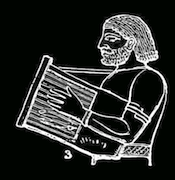Krankenstyle posted:God, if it seemed like I was talking about Americans as if they weren't irl folks, I apologize.
|
|
|
|
|

|
| # ? Jun 3, 2024 19:58 |
|
Yea! I remember first realizing that. It's pretty wild that literal cavemen were as intelligent as we are supposed to be; they just werent taught as much
|
|
|
|
Luckily, we have cooking recipes from the Renaissance preserved. Il libro della cucina del sec. XIV lists dozens of common recipes of the era. You can easily read it if you have a decent grasp of modern Italian. It’s available on Project Gutenberg.quote:De la senape. On mustard Pick some mustard greens and boil them in water. Throw away the water and pan fry the greens with some oil and salt, or cook them with meat.
|
|
|
|
Sure, cavemen might like to eat rennaissance food Maybe they're not that into spices though. Salt is ok, but even olive oil is a 5 day import
|
|
|
|
Samovar posted:Actually, since we're talking about WW2, I have an interesting fact that is thankfully not about tanks. The U.K. 'trained' a bunch of militiamen to act as immediate defence against Nazi invaders, particularly around areas thought to be vulnerable to paratrooper attack - you may have heard them jocularly known as 'Dad's army's, due to the average member being a bit long in the tooth. They were given pretty shoddy equipment and were often more a hindrance than a help. The stereotype of the Home Guard was that they were all old men playing soldier, but the average age was really about 30-35. They were mostly people who had been exempted from conscription due to being in reserved occupations (farmers, doctors, miners, engineers, etc) who volunteered for domestic defence in their spare time. They were badly equipped and ultimately didn't have a lot to do, but the idea of them being bumbling idiots who just got in the way comes more from the Dad's Army sitcom than from reality. This was separate from the Auxilliary Units, who were essentially a guerilla force in waiting. They were given explosives and trained in demolition and sabotage. Had Operation Sealion gone ahead then the Auxiliary Units were supposed to go to ground and do anything they could to slow down the invasion - from bringing down communication wires and blowing up railway lines to suicide bombing German patrols. Sweevo has a new favorite as of 00:33 on Feb 4, 2018 |
|
|
|
Alhazred posted:That was a bad period to be a horse... Poor Freckles, decapitated by a macuahuitl and died.
|
|
|
|
If we're trying to escape the Milhist trap, here's some non-mil weird history: This was Blok P in Greenland, build in 1965 to provide public housing. It was the biggest public housing ever built by Denmark, and at one point some 1% of the entire nation of Greenland lived in this one building.  Much like Cabrini Green in Chicago, and plenty of other utopian uber-massive housing projects, it turned into a total shitshow. It literally became a tourist attraction just over how depressing it was. Among its many failings, they just took designs that worked in European Denmark and dropped them off in Greenland, despite locals having totally different priorities. Among other problems, it had really narrow corridors and doorways that were hard to get through when all bundled up Arctic-style, no good place to store fishing and hunting gear, and lacking any good place to butcher large fish and seals, tenants cleaned their catch in the bathtubs and clogged the plumbing with congealed blood. The building was eventually demolished in 2012, and vague plans are underway to eventually do something with the huge empty lot left in the middle of the capital by the demolition.  For contrast, here's how cute Nuuk is when not overwhelmed with a Soviet-esque concrete monstrosity: 
|
|
|
|
typisk dansk
|
|
|
|
Inescapable Duck posted:I recall reading about prehistoric flint axes, spearheads and even knives which have been sharpened to near-monomolecular edges.
|
|
|
|
It is rather well known that during the viking era in scandinavia, women had quite a bit more power than they would have later during the christian era. Women were in charge of the entire household (including slaves), managed finances and were the only ones allowed to carry the keys of the household. Soothsaying was a scary, women-only magic, as was mathematics (In some of the stories, Odin is poo poo-talked by other gods because he dabbles in the "womanly" art of soothsaying). Less well known is that in viking society, only women were allowed to wear short-sleeved tunics. In fact, a man wearing a short-sleeved tunic was valid cause for his wife to divorce him.
|
|
|
|
Speaking of guerilla warfare units, East Germany had developed a little something of its own in this regard, namely a top secret militia comprised of loyal West German communists who in the event of a conflict were to kill and sabotage as much as they could, preparing the grounds for a Warsaw Pact invasion. We know that by 1953 at the latest (and quite likely even earlier), the Stasi had been making plans for acts of sabotage in the West in the case of the Cold War turning hot. After its formation in 1955, the East German National People's Army (NVA) took part in those plans as well, establishing a top secret unit around Gustav Röbelen (1905-1967), a member of the German Communist Party KPD since 1929, and veteran of both the Spanish Civil War and World War 2 as a member of a Soviet special ops unit. Röbelen led this unit (named "Dienststelle R" for Röbelen) from 1957 on, but to its consternation the Stasi and NVA higher-ups had to realise that being a good soldier doesn't necessarily translate inot a good administrator and commander. Röbelen didn't really give a poo poo about bureaucracy and rules, invited whomever he wanted into his little secret club (some of which had NSDAP members as parents and/or a ton of close relatives in the West, both of which the Stasi *really* didn't want to see in its supposed elite guerilla warriors; another one had left the East German SED in 1949 because they wouldn't give him a CB radio license (lol) and only rejoined in 1955 when not being in the party proved a hindrance for his military career), spent way more than his allotted money and was way too undisciplined for a job that should normally be shrouded in secrecy. Röbelen was given a cushy desk job at the Ministry of Transportation in 1959, and most of his militia men were discharged from active service too. The East German authorities didn't drop the idea of a secret paramilitary unit in the West, though. Röbelen's successor was Ernst Haberland (1903-1992), a former Buchenwald inmate who would later on become one of the GDR's leading military historians. Haberland renamed the unit into "Verwaltung 15" and thoroughly cleaned up its act. He even established an own boarding school, where the children of prospective militia members were educated while their parents were in training; the schildren themselves underwent training too and often seamlessly joined up after finishing school. Most of the members of Verwaltung 15 were GDR citizens outfitted with forged West German passports. By 1962, at least 88 sleeper agents were working in West Germany and West Berlin. Haberland's work was seen as so successful, that the Stasi decided to transfer the unit into its commaned by 1962, because its powerful and widely feared director Erich Mielke (I wrote a bit about him somewhere upthread) saw its work as more suited for an intelligence agency than the official and relatively rigid structures of a military; also, Mielke wanted to redirect its purpose from support and paramilitary action during times of war into an operative branch of the Stasi that could be active during peace as well. Haberland, an NVA man through and through, didn't go along with the transfer. The Verwaltung 15 was dissolved, its remaining members becoming part of the Stasi's "Department IV"; it would later on become Mielke's favoured unit for carrying out hits on "enemies of the republic" residing in the west. The precise number of assassinations is to this day unknown, with a number of sudden deaths and mysterious suicides being regarded as likely being secret Stasi ops. In addition to Mielke's wetwork unit, the GDR's efforts to build up a paramilitary support and espionage network comprised of mainly sympathetic westerners didn't stop, either. After the establishment of West Germany's new Communist Party, the DKP, in 1968 (its predecessor, the KPD of Weimar Republic fame, had been declared "enemies of the constitution" and dissolved by the supreme court in 1956), the new party was immediately used by the Stasi as its extended arm into the West German political scene. A top secret part of the DKP was the "Ralf Forster group", consisting of a small number of fanatically devoted communists who were given secret training in the GDR to assist the Stasi and the NVA in espionage and secret ops while also preparing for a targetted weakening of the West German political and military structure (e.g. by assassinating important politicians or generals) and taking up guerilla warfare in the event of the Cold War escalating. Behind the "Ralf Forster" name was Harry Schmitt (1919-1999), an very interesting figure about whose biography to this day much is unknown. Schmitt was the son of Heinrich Schmitt (1895-1951), a Bavarian KPD member and former member of parliament in Weimar Germany who led a secret Soviet-led resistance operation after the Nazis took power in 1933. Schmitt sr. spent much of the war in Gestapo prisons and was named cabinet minister in Bavaria in 1945 by the Allies, being made responsible for denazification. His work for the Americans led to his splitting with the KPD, who publicly denounced him in 1946; he would later on join the social democratic SPD, which earned him a spot on the KPD's poo poo list. Harry Schmitt had emigrated in 1933 to Moscow at the young age of 13. In 1938, he was arrested by the Soviet NKVD, accusing him of being a member of a secret Hitler Youth branch in Moscow determined to assassinate Stalin - a ludicrous charge, but par for the course during Stalin's great terror. After being tortured in the infamous Lubyanka prison, Schmitt was finally sentenced to five years of prison labour, but got released early in 1940. Despite (or maybe even because?) his horrific experiences with the Soviet authorities, Schmitt joined up with the Red Army in 1942 and became part of a special ops unit similar to what Röbelen had done during the war. In 1943, he got arrested by the SD (the intelligence branch of the Wehrmacht) and sent into a concentration camp, but he managed to escape with the help of his Soviet superiors and spent most of the rest of the war as a lone guerilla fighter behind the front lines. After the war, Schmitt was ordered to join the KPD, with his new duty being the purging of unsufficiently pure communists from the party. It was rumoured that he was as uncompromising and fanatical as he was because of his father's "betrayal" of the communist cause. In 1953, he emigrated to the GDR and coordinated his work within the West German KPD both before and after its dissolution from East Berlin. After the DKP's establishment in 1968, he eventually took on a double identity as Harry Schmitt and "Rolf Forster", living both in East Berlin (under the cover of an average SED functionary) and Frankfurt/Main. In Frankfurt he purported to be a relatively quiet, but yet high-up functionary of the DKP; inofficially he coordinated and led a top secret paramilitary unit bent on sabotaging the hated west. His unit was so secret that only two other people in the DKP (besides the unit's members) were to know about it, and even in the GDR knowledge of Schmitt's work only extended to a small and very select group of people. A weird fun fact in this regard here is the way how Schmitt would cross the border between the two states: the Stasi prepared a specific bathroom for him and other top secret operatives at the Friedrichsstraße border crossing in Berlin. Schmitt would go to the loo there, open a secret door, walk down a long underground tunnel and emerge unseen in the western half of the city. The members of Schmitt's unit regularly underwent training by elite units of the NVA in East Germany, being trained in all manners of espionage, sabotage, armed and unarmed combat and even targetted killings. The exact number of members is unknown, but we know that already by 1976 285 people had undergone the training. From the 1980s on, the focus of the units shifted, turning from preparing for an active sabotage of the west to becoming a support network for the Stasi's intelligence activities. The GDR pumped a ton of money into the whole thing, with expenses for the unit exceeding three million DM a year. The exact extent of Schmitt's work is unknown, although his known close ties to and cooperation with communist associates in Austria and Denmark suggest the possibility that his area of operations might not have been constricted to West Germany alone, or that his unit might even have been part of a larger Soviet-led network of secret paramilitary units operating all over Europe. After the fall of the wall in 1989, the unit (that still was under Schmitt's command by then) was unceremoniously dissolved a couple of weeks later. Schmitt retired into obscurity, his real role during the Cold War being uncovered only years after his death in 1999. According to his last will, his casket was shrouded in the Soviet flag - no wonder, seeing as he had wholeheartedly supported the communist and especially Soviet cause for basically all his life (as well as there being a number of hints that he also might have been a KGB spy all these years). West German courts sentenced a small number of known "Ralf Forster" associates to relatively mild fines after reunification, but that was it. Of the up to 2000 people who may have been living in the west as sleeper agents of the GDR, many of them trained in paramilitary warfare, virtually nobody was ever sentenced to anything, and a large number of them probably are productive members of society to this day, with noone else being aware of their past. The DKP still exists as a tiny fringe party and continues to vehemently deny the existence of any secret paramilitary unit within its ranks. What's interesting now is also the question whether there was a similar organisation being set up by the Western powers. We know that under the wings of the CIA-led "Operation Gladio", a number of western European intelligence agencies started "stay-behind units" that were to covertly sabotage and resist the Warsaw Pact in the case of an invasion; those Gladio units also covered right-wing extremist cells aimed against supposed Eastern bloc agents and their associates, sometimes even going so far as to carry out false flag attacks. Those Stasi files that weren't destroyed in 1989/1990 suggest that the Stast was at least aware of a West German attempt to set up a similar unit within the GDR back in the 50s and 60s, though how successful that really was is still completely unknown and will probably remain classified for a long time. As an aside: I would really have liked to put up some images along with this post, but the very nature of its topic makes it exceedingly hard to find pictures that have anything to do with it. All I have is this map and reconstruction of the secret "Ralf Forster" training camp I grabbed from a 1990 magazine article that first made the existence of the program public:  Where the camp was located, marked as "SED-Ausbildungslager"  Reconstructed map of the camp. Wache=guard; Tor=gate; Munitionsbunker=ammunition bunker; Kleiderkammer/Personal=wardrobe, personnel; Küche/Speisesaal=kitchen, dining room; Unterkunft=living quarters; Schlucht=ravine; Sportplatz=sports field; Lehrgebäude=class rooms; Badeplatz=waterside area; Schießstand=shooting range e: you can still make out some of the ruins of the camp here on Google Maps which is kinda cool. It looks like you can see the remains of the guard post, the personnel building and the kitchen. The whole camp area is part of a military installation now and therefore not publicly accessible. I wonder what sort of interesting stuff the BND found there after 1990? System Metternich has a new favorite as of 23:56 on Feb 3, 2018 |
|
|
|
While I share a lot of goons' mixed feelings about American cops, here's some interesting Baltimore Police history. Distinct from other departments in the US, Baltimore has traditionally used a special type of baton called an espantoon: https://en.wikipedia.org/wiki/Espantoon It's a long wooden baton with a special long strap that makes it easy to swirl and do baton tricks. Back in the 1990s the new police commissioner banned the espantoon since he claimed that twirling it was intimidating, but he replaced it with an even longer baton that lacked a tangent or strap, and that was arguably more dangerous since it was longer and could get a better swing. In 2000, a new commissioner brought it back as a popular cultural item for Baltimore cops. While to one degree a baton can be bad if it makes cops feel more free to beat on people, I'm overall in favor of cops having a variety of non-lethal options. Particularly if they're actually following their procedures and totally banning head-hits which are a greater lethality risk, and using techniques designed to maximize subduing effect while minimizing risk of long-term damage. The espantoon is one of the many, many subtle little local references in The Wire. I haven't watched it in forever, but there's a scene where the white-haired cop gets taken off the special anti-drug team and put back in uniform walking a beat, and it shows him happily walking down the street twirling his espantoon in the old-school way. This video clip appears to be Baltimore cops doing espantoon tricks: https://www.youtube.com/watch?v=QRl1TqSLpFU
|
|
|
|
Take the plunge! Okay! posted:Luckily, we have cooking recipes from the Renaissance preserved. Il libro della cucina del sec. XIV lists dozens of common recipes of the era. You can easily read it if you have a decent grasp of modern Italian. It’s available on Project Gutenberg. Speaking of Ren. food, we also have Michelangelo's grocery shopping list, with helpful illustration to aid his illiterate (?) servant. The diet of the time was very much fish and wine based: 
|
|
|
|
Sweevo posted:The stereotype of the Home Guard was that they were all old men playing soldier, but the average age was really about 30-35. They were mostly people who had been exempted from conscription due to being in reserved occupations (farmers, doctors, miners, engineers, etc) who volunteered for domestic defence in their spare time. They were badly equipped and ultimately didn't have a lot to do, but the idea of them being bumbling idiots who just got in the way comes more from the Dad's Army sitcom than from reality.  George Orwell was part of the Home Guard. He's last in the back row.
|
|
|
|
Sweevo posted:This was separate from the Auxilliary Units, who were essentially a guerilla force in waiting. They were given explosives and trained in demolition and sabotage. Had Operation Sealion gone ahead then the Auxiliary Units were supposed to go to ground and do anything they could to slow down the invasion - from bringing down communication wires and blowing up railway lines to suicide bombing German patrols. They also had secret orders to be opened in case of invasion. The orders were to murder the people who gave them the secret orders so they couldn't be traced.
|
|
|
|
Take the plunge! Okay! posted:Luckily, we have cooking recipes from the Renaissance preserved. Il libro della cucina del sec. XIV lists dozens of common recipes of the era. You can easily read it if you have a decent grasp of modern Italian. It’s available on Project Gutenberg. please say that whole drat thing is translated somewhere. into english
|
|
|
|
Krankenstyle posted:It is obvious to me that all people in the present and the past are clever as gently caress. very probably the future too but we'll see Although, speaking of farm horses, it was kind of amazing to me that people rode horses while anguishing over the fact that they had to plow their fields with much slower oxen. Until, after a few thousand years, someone realized that you could attach something to a horse's chest without just tying rope across it. https://www.britannica.com/technology/horse-collar
|
|
|
|
System Metternich posted:Some jolly interesting stuff This reminds me, I need to reread The Spy Who Came In From The Cold.
|
|
|
|
funmanguy posted:please say that whole drat thing is translated somewhere. It is and I've seen it before, but sadly most of the websites offering it also bombard you with ads about subscribing so here is a reddit post. AFAIK it's accurate though: Pani Dua (?) Two pieces of bread? Un Bocal di Vino (a quart of wine) Un Ariga (Herring) Tortegli (tortellini?) Una salama (some sort of salami, see here) Quattro pani (4 pieces of bread) Unh Bochal di Zodo (a pitcher of ... ??) Un quartuccio di Bruschino (Red wine.. incorrectly translated as rough wine.. whatever that means...) un ??? di spinaci (Spinach!) Quattro Alici (sort of anchovies..) Tortelli (again?!) Sei Pani (6 pieces of bread) Due Minestre di Finocchio (Fennel soup... YUMMY) Un aringa (a herring) Un boccal di Zondo (a pitcher of ?? ) I think it's presumed to be a multi-day shopping list and he doesn't just repeat items because he's an idiot, but someone can probably correct me. Also before nazichat fades too far into the past, remember that the Panther's main MG had to be balanced on the assistant driver's head. Edgar Allen Ho has a new favorite as of 07:19 on Feb 4, 2018 |
|
|
|
You're mostly right, except that the salami is in fact a salad  I posted the full transcription and translation sometime back: I posted the full transcription and translation sometime back:quote:
e: also I'm pretty sure it's supposed to a multi-day list, too. I also don't think that the servant was (fully) illiterate, because it's pretty hard to know what sort of wine you're supposed to buying just going off a random doodle of a pitcher System Metternich has a new favorite as of 08:34 on Feb 4, 2018 |
|
|
|
Krankenstyle posted:Yea! That Epic Rap Battles of History channel did a video of Thomas Jefferson vs. Frederick Douglass, and since their comments are full of insane racists one guy was like "hur hur why does that friend of the family think he's clever for teaching himself to read, 5 year olds can read!" Completely missing that until like the last two centuries the kind of elementary education required for mass literacy didn't exist anywhere, and that even when it did there were whole groups of people excluded from it. Never mind the startling numbers of adults even in first world countries for whom "reading" means "being able to choose from a menu or fill in a standardised form with only minor errors." Conversely, an awful lot of the education we do have is only useful because of the massive network of things which support it. It's pretty wild to think about the poo poo that didn't exist 10, 20, 30 years ago and how completely it changes our contact with the world.
|
|
|
|
I noticed some stone tools earlier. It used be*, that the local city museum in Odense, had the walls of the staircase in one of their exhibition buildings, covered in stone axes, just hung on nails and whatever on the wall. As a decoration. Everyone of those could be anything from four to six thousands years old, some even older, but they were all, to a point, utterly worthless. Why? No data on them, they'd been part of some amateur collector's collection in the 1800's, and the dumb fucker hadn't kept any information at all, nothing, just a bunch of rocks essentially, without the archaeological data, and with the abundance of stone tools available already, they are just decorations and nothing else. They had a small plaque explaining the whole thing, a useful lesson in how archaeological digs are actually suppose to be. *Recent expansion, no idea if they still do it.
|
|
|
|
Pretty much every museum has stuff like that. I went on a school tour with a museum where they showed a fancy Greek athlete's trophy which they said is archeologically near-worthless, since it was brought back by some soldier who knew nothing about what it is or where it was from.
|
|
|
|
System Metternich posted:You're mostly right, except that the salami is in fact a salad I think I read somewhere that the doodles might indicate who to buy from? So you see a little fish, report to the fish vendor and show him the paper. My headcanon is that the doodles are Michaelangelo being bored and hungry one day
|
|
|
|
Edgar Allen Ho posted:My headcanon is that the doodles are Michaelangelo being bored and hungry one day Michelangelo was a party dude. Wheat Loaf has a new favorite as of 16:01 on Feb 4, 2018 |
|
|
|
I think a big limiting factor in literacy wasn't necessarily society or even intelligence, but simply having writing materials. Depending on the area and era, they may have had to use slates, parchment, papyrus or something else, and a lot of people probably only used writing materials on special occasions or for repeated use because it was so expensive and hard to find. Let alone all the stuff that simply didn't last, so we don't have any evidence. And much like today, a lot of people were probably only barely literate enough to manage through their own lives to whatever extent. And even powerful people would have a hard time learning to read if they weren't taught at a young age; I remember reading that Charlemagne valued learned people as his advisers, but was never able to write properly, and the prophet Muhammed only learned to read late in his life.
|
|
|
|
TapTheForwardAssist posted:While I share a lot of goons' mixed feelings about American cops, here's some interesting Baltimore Police history. Those are, in fact, New York cops, but you can see some B-more cops spinning the espantoon.
|
|
|
|
Inescapable Duck posted:And much like today, a lot of people were probably only barely literate enough to manage through their own lives to whatever extent. And even powerful people would have a hard time learning to read if they weren't taught at a young age; I remember reading that Charlemagne valued learned people as his advisers, but was never able to write properly, and the prophet Muhammed only learned to read late in his life. Francisco Pizarro (a conquistador who went to Peru and nicked all the Incas' gold) never learned to write, so he had stencils of his name made and filled them in when his signature was required on important documents.
|
|
|
|
Wheat Loaf posted:Francisco Pizarro (a conquistador who went to Peru and nicked all the Incas' gold) never learned to write, so he had stencils of his name made and filled them in when his signature was required on important documents. Afaik this was pretty common. For example famed illiterate Charlemagne has a badass signature, because he had a stencil.
|
|
|
|
Edgar Allen Ho posted:Afaik this was pretty common. For example famed illiterate Charlemagne has a badass signature, because he had a stencil. Here house marks /signature marks https://en.wikipedia.org/wiki/House_mark were still in use in the rural countryside, when my father started as a land survey engineer in the 60's. It basically is a signature for the person who is 100% illiterate and not constrained by things like alphabet or pronounciation. In the very olden times, they also doubled as a family crest for the people who were not actual nobility.
|
|
|
|
To be fair, Charlemagne made an honest effort learning to read and write in his later years (iirc he even slept with a pen and a clay tablet or somesuch under the pillow), but in between ruling over a massive empire, siring a gazillion kids and waging endless wars, he never really managed to do it, and learning new things becomes increasingly harder with age anyway
|
|
|
|
System Metternich posted:To be fair, Charlemagne made an honest effort learning to read and write in his later years (iirc he even slept with a pen and a clay tablet or somesuch under the pillow), but in between ruling over a massive empire, siring a gazillion kids and waging endless wars, he never really managed to do it, and learning new things becomes increasingly harder with age anyway I'm not exactly in favour of hereditary warrior-kingships and definitely wouldn't want to be on the receiving end of Charlemagne's armies, but otoh, that and other tidbits make me think he may have actually been a really swell monarch as far as warrior-kings go. Sources make him sound like he was at least making an honest effort at being a decent ruler.
|
|
|
|
FreudianSlippers posted:In Iceland alchohol was prohibited in 1915. However after a trade agreement with Spain the ban on wine was lifted, Iceland agreed to buy wines from Spain and Spain would buy salted fish from Iceland. Prohibition ended in 1935 but beer, or at least beer stronger than 2,25%, was still banned. This wasn't really a problem since Icelanders didn't have much of a beer culture, Iceland is far outside the European beer belt and most people preferred stronger spirits such as the traditional brennivín. This is from way back, but I remember that! It was on the news and they interviewed people having beers in a bar in Reykyavik. One lady was asked what she thought about it and she answered: "It's great! Now I can have a beer on mondays, tuesdays, thursdays, fridays, saturdays, sundays ... and wednesdays."
|
|
|
|
Edgar Allen Ho posted:I'm not exactly in favour of hereditary warrior-kingships and definitely wouldn't want to be on the receiving end of Charlemagne's armies, but otoh, that and other tidbits make me think he may have actually been a really swell monarch as far as warrior-kings go. Sources make him sound like he was at least making an honest effort at being a decent ruler. Remember that it was him and his heirs who got them written. I think the Saxons that he, essentially, tried to genocide would have vehemently disagreed with your assessment.
|
|
|
|
Inescapable Duck posted:I think a big limiting factor in literacy wasn't necessarily society or even intelligence, but simply having writing materials. Depending on the area and era, they may have had to use slates, parchment, papyrus or something else, and a lot of people probably only used writing materials on special occasions or for repeated use because it was so expensive and hard to find. Let alone all the stuff that simply didn't last, so we don't have any evidence. One of the very interesting things about archaeology relating to ancient Egypt is that if you examine papyrus right you can actually figure out what was written on it before whatever is on it now. Papyrus was kind of a bitch to make but was thick and sturdy so they'd literally scrape off whatever was on it to use it again. That turned out to be a massive gift to future people studying Egypt. While a lot of it was just mundane record keeping that can actually teach us a lot about the past. Incidentally that's also why we know so much about Rome; they were obsessive record keepers and very, very organized. As to Charlamagne the theory is that he was actually dyslexic. It's harder to learn to read if you do it late in life but definitely not impossible unless you have some sort of issue like, you know, dyslexia. By all accounts he did manage to become pretty educated and had a scholar follow him around and teach him stuff. Unfortunately he just plain couldn't pull off literacy. He knew how to speak multiple languages and was all about that fancy book learnin' that most people had no access to or interest in at the time. But yeah writing materials being crazy expensive was the biggest limiting factor over history. There was also just plain no need for your average person to be literate; before contemporary education you mostly learned on the job. Chances are if you were the child of farmers you learned to farm from a very young age by just, you know, hanging around your family and farming with them for survival's sake. Until very recently in history the vast majority of people were doing subsistence living of some sort; typically farming or fishing. Generally speaking in that case there just isn't the time, the resources, or the need to become literate. Manufacturing books didn't really happen until the 15th century and even then it was limited as paper was still pretty expensive. Beyond that that's why apprenticeship was always a thing; if you weren't needed on the farm or were born to the craftsman class you probably helped out an older crafty type person before you were even a teenager and learned the trade by doing. Few professions that existed at the time needed writing.
|
|
|
|
Edgar Allen Ho posted:Afaik this was pretty common. For example famed illiterate Charlemagne has a badass signature, because he had a stencil.
|
|
|
|
What I think is pretty interesting about past and present societies where literacy doesn't play a large role is how incredibly strong their oral tradition and culture was. It's been proven for example that members of those societies can memorise stuff way better than your average literate westerner. If we could pull a random medieval peasant into our times we would probably be amazed by the sheer amount of songs, poems and stories ha would be able to recount from memory.
|
|
|
|
Some Danish housemarks from 1675: The last guy (Niels Pedersen) could write, instead of a housemark it says "own hand" Carthag Tuek has a new favorite as of 21:36 on Feb 4, 2018 |
|
|
|
System Metternich posted:What I think is pretty interesting about past and present societies where literacy doesn't play a large role is how incredibly strong their oral tradition and culture was. It's been proven for example that members of those societies can memorise stuff way better than your average literate westerner. If we could pull a random medieval peasant into our times we would probably be amazed by the sheer amount of songs, poems and stories ha would be able to recount from memory. Another thing, though, is that almost everything worth remembering in oral societies was song or poem. I’m guessing most people reading this post can’t tell a single story. They might be able to rattle off the plot of Breaking Bad in detail, but sure as hell cannot tell a compelling tale. They can maybe do a convincing folk story or two for their kids. But everyone reading this post, even if they are Satan’s own soprano and would never, ever sing in front of another human, probably knows a dozen songs by heart, and dozens more that they don’t actively remember but somehow know the lyrics to when they come on.
|
|
|
|

|
| # ? Jun 3, 2024 19:58 |
|
System Metternich posted:What I think is pretty interesting about past and present societies where literacy doesn't play a large role is how incredibly strong their oral tradition and culture was. It's been proven for example that members of those societies can memorise stuff way better than your average literate westerner. If we could pull a random medieval peasant into our times we would probably be amazed by the sheer amount of songs, poems and stories ha would be able to recount from memory. When they eventually did write the laws down in the law book Grágás they filled about four volumes of 250 or so pages. Obviously this wouldn't be just some rando off the street (or lack thereof) but someone already learned in the law but still that is a heck of a lot to memorize. FreudianSlippers has a new favorite as of 23:27 on Feb 4, 2018 |
|
|










































